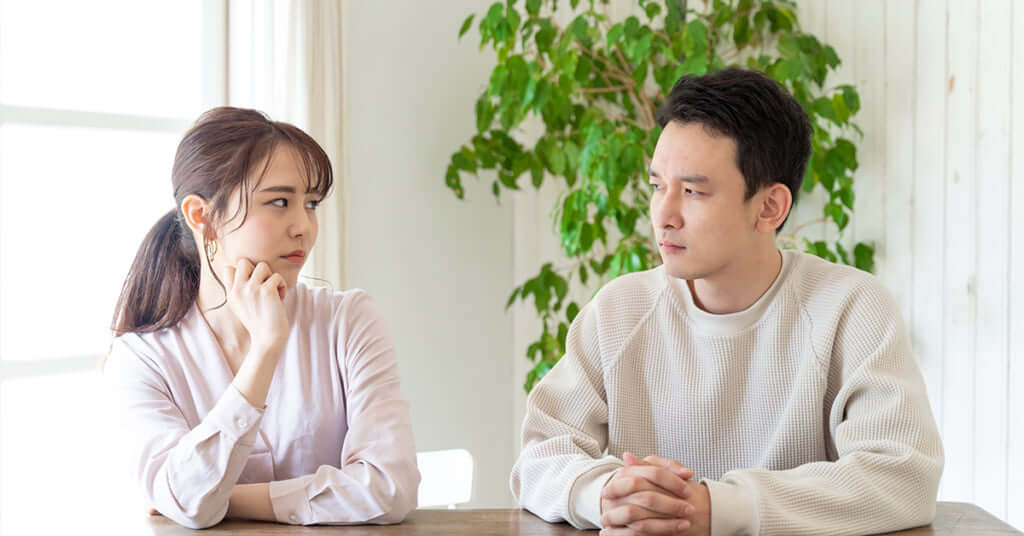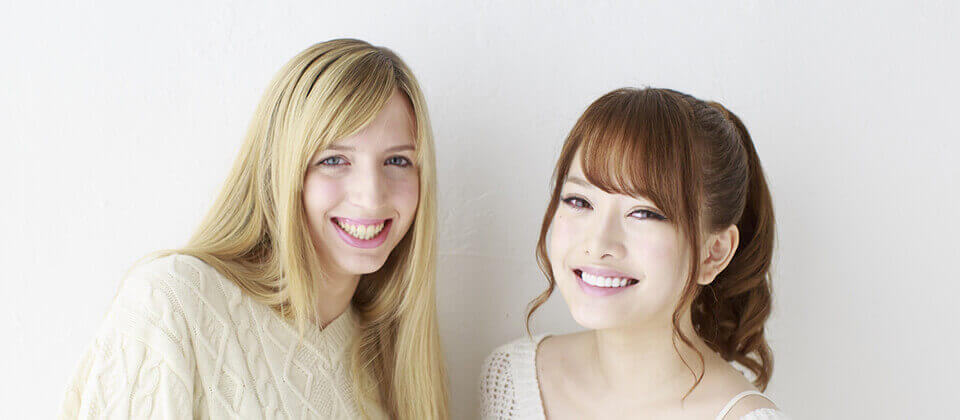
The coronavirus pandemic has forced people to spend long hours at home. This gives rise to tension in the household and frequent quarrels and conflicts with your partners, spouse, or children.
This article will introduce some Japanese expressions used during quarrels and arguments.
As these expressions are rather strong-worded and unpleasant in nature, we strongly discourage the use of such expressions if possible.
Basic Expressions
Let’s look at the basic vocabulary. Young children may be reprimanded by their parents if they use such words. It’s good to know what some of these words are, as you can put a stop to it if your child starts to use them.
ばか、バカ、馬鹿
Baka
Stupid
”ばか Baka” and “あほ Aho” mean “stupid”. People in the Kanto region usually use Baka while Kansai people use Aho more often.
E.g.)
Younger sister: “お兄ちゃんのバカ!Oniichanno baka!” You are stupid!
Older brother: ”バカっていうやつがバカだよ! Bakatte iuyatsuga bakadayo!” Stupid is the one who said “Stupid”!
あほ、あほ、阿呆
Aho
Idiot
”あほ Aho” is mostly used in the Kansai region. Many Japanese comedians come from Kansai and “Aho” is used in Japanese comedy duo skits called “manzai”. Through mass media, the term Aho began to be used throughout Japan. The dialogue below shows a quarrel spoken in Kansai dialect.
E.g.)
Older brother: ”お前、あほちゃうか? Omae ahochauka? ” Are you an idiot?
Younger sister: ”あほはお前やろ Ahowa omaeyaro? ” You’re the idiot.
ぼけ、ボケ
Boke
Forgetful, senile
”ぼけ Boke” means “to be forgetful”, “the funny man in a comedy duo skit”, or “to be suffering from dementia such as Alzheimer”.
E.g. 1)
Husband: ”スーパーでビール買ってきた? Suupaade Biiru kattekita?” Did you buy the beer from the supermarket?
Wife: ”あ、ごめん、忘れちゃった。A, gomen, wasurechatta. ” Sorry, I forgot.
Husband: ”なんだよ、ボケ。Nandayo boke. ” What? So forgetful.
Wife: ”うるさいわね、じゃあ、自分で買い物すればいいじゃないUrusaiwane. Jyaa jibunde kaimonosureba iijyanai. ” Shut up. Just buy it yourself.
E.g. 2)
Wife: ”お義母さん、今日も何度も同じこと聞いてくるの Okaasan, kyoomo nandomo onajikoto kiitekuruno.” Your mom kept asking the same thing today.
Husband: ”まさかボケたんじゃないだろうな? Masaka boketanjyanaidaroona?” I hope she’s not becoming senile.
のろま、ノロマ
Noroma
Slowpoke
This is used to make fun of people who are slow.
E.g.)
Mother: ”早くご飯を食べなさいHayaku gohanwo tabenasai.” Eat your meal quickly.
Younger sister: ”もう食べたくないMoo tabetakunai.” I have had enough.
Older brother: ”ノロマ、ノロマNoroma, noroma” Slowpoke, slowpoke
Younger sister: (Starts crying)
でぶ、デブ
Debu
Fatty
A word to mock people who are fat.
E.g.)
Husband: ”お前、最近また太った? Omae saikin mata futotta?” You’ve gotten fat again?
Wife: ”太らわないわよ、デブはあなたでしょ Futoranaiwayo.Debuwa anatadesyo?” No, I’m not. You’re the fatty one.
ぶす、ブス
Busu
Ugly woman
A word to mock women who are ugly.
E.g.)
Older brother: ”ブス! Busu!” Ugly!
Younger sister: ”デブ!”Debu!” Fatty!
Such squabbles between siblings is probably heard daily in Japanese homes.
けち、ケチ
Kechi
Miser
Someone who is “ケチ Kechi” (miser) is reluctant to part with his/her money or possessions. Being thrifty “節約 setsuyaku” is a virtue where you do not waste money or items but a “kechi” is used for someone makes others feel unpleasant because he/she does not spend money on others.
E.g.)
Girlfriend 1: ”この前のデートどうだった? Konomaeno deeto, doodatta?” How was your date?
Girlfriend 2: ”あの人、すごくケチ。もう二度と会わないわ。Anohito, sugokukechi. Moo nidoto awanaiwa.” He’s such a miser. I’m never gonna meet him again.
嘘つき
Usotsuki
Liar
”Usotsuki” literally means “a person who lies”.
E.g.)
Girlfriend: ”あなた、結婚してたの? Anata, kekkonshitetano?” You were married?
Boyfriend:”別に隠していたわけじゃないんだ! Betsuni kakushiteitawakejya nainda!” I didn’t hide it or anything.
Girlfriend: ”嘘つき! Usotsuki!!” Liar!!
最低。
Saitee
The worst
”最低 Saitee” literally means “the lowest”. It often used with other terms such as “最低気温 saitee kion” (lowest temperature), “最低価格 saitee kagaku” (lowest price). If used as an insult, it means “terrible, horrible, the worst”.
E.g.)
Girlfriend 1: ”この前のデートどうだった? Konomaeno deeto, doodatta?” How was your date?
Girlfriend 2: ”あの人、二股してたの。もう二度と会わないわ。Anohito, hutamatashitetano. Moo nidoto awanaiwa.” He’s two-timing me. I’m never gonna meet him again.
Girlfriend 1:”最低! Saitee!” That’s terrible!
うるさい。
Urusai
Shut up
”うるさい Urusai” literally means “noisy, loud”. The real meaning of this word is “Be quiet”, “Shut up”.
E.g.)
Children: (Making loud noises)
Mother: ”うるさい!!!! Urusai!!!” Shut up!!!
ずるい。
Zurui
Not fair
This is probably often used among siblings.
E.g.)
Older brother: ”僕はこっちを食べるBokuwa kocchiwo taberu.” I’m eating this.
Younger brother: ”兄ちゃんのほうが大きい。ずるい! Niichanno hooga ookii! Zurui!” Yours is bigger. That’s not fair!
うざい。
Uzai
Annoying
Uzai is the abbreviated form of “うざったい uzattai” and it means “annoying”. The abbreviated form is often used among young people.
E.g.)
Girlfriend:”ねえ、ちゃんと私の話聞いてる? Nee, chanto watashino hanashi, kiiteru? ” Hey, are you listening to me?
Boyfriend: ”聞いてるよ。お前、うざい。Kiiteruyo. Omae,uzai. ” Yes, I am. You’re annoying.
むかつく。
Mukatsuku
Feel sick, pissed off
Other than the meaning of physically “feeling nauseous and sick”, mukatsuku also means “to be angry”. This is used among young people.
E.g.)
Older brother:”俺のゲーム、勝手に使ったな。むかつく! Oreno geemu, katteni tsukattana.Mukatsuku! ” You used my games without asking. I’m so pissed off.
Younger brother: ”使ってないよ。Tsukattenaiyo” I didn’t.
気持ち悪い。
Kimochiwarui.
Feel sick, disgusting
Kimochiwarui has two meanings. The first is physically feeling sick or nauseous due to illness or overeating. The second meaning is the feeling of disgust after seeing or touching something such as an insect. It is extremely rude if the second meaning is used toward a person.
E.g.)
Female high school student1: ”あのオヤジ、見て! Anooyaji, mite. ” Look at that man.
Female high school student2 ”うわー、変な顔。気持ち悪い! Uwaa. Hennakao. Kimochiwarui! ” What a strange face. So disgusting!
キモい。
Kimoi
Creepy
This is the abbreviated form of kimochiwarui. It is often used among young people.
E.g.)
Female high school student1: ”あのオヤジ、見て! Anooyaji, mite. ” Look at that man.
Female high school student2: ”うわー、変な顔。キモい! Uwaa. Hennakao. Kimoi! ” What a strange face. So disgusting!
Giving your kids a good talking-to
Reprimanding or scolding your kids is always a delicate topic in any culture. Let’s look at a list of phrases used to reprimand or rebuke children. “~nasai” is a soft imperative form.
静かにしなさい。
Shizukani shinasai.
Be quiet.
早く起きなさい。Hayaku okinasai. Wake up early.
早くご飯を食べなさい。Hayaku gohanwo tabenasai. Have your meals early.
喧嘩はやめなさい。
Kenkawa yamenasai.
Stop quarreling.
部屋を片付けなさい。
Heyawo katazukenasai.
Clean your room.
ゲームをやめなさい。
Geemuwo yamenasai.
Stop playing games.
勉強しなさい。
Benkyoo shinasai.
Go and study.
Unfortunately, kids simply do not listen to their parents with just one scolding. Subsequent rebukes would see increasing intensity and tone from the parents.
Soft imperatives would become a stronger imperative. Such strong tones are usually used by male speakers. However, female speakers may use these tones when they are really angry.
Using a stronger imperative tone on your kids may result in backlash so be careful when using them.
静かにしろ!
Shizukani shiro!
Be quiet!
早く起きろ!
Hayaku okiro!
Wake up early!
早くご飯を食べろ!
Hayaku gohanwo tabero!
Have your meals early!
喧嘩はやめろ!
Kenkawa yamero!
Stop quarrelling!
部屋を片付けろ!
Heyawo katazukero!
Clean your room!
ゲームをやめろ!
Geemuwo yamero!
Stop playing games!
勉強しろ!
Benkyoo shiro!
Go and study!
Grumbling about your wife
The following phrases are extracted from the “Top 10 Words That Make Wives Totally Exhausted When Said By Husbands”.
The phrases are not particularly strong-worded but as they are said from the husband’s perspective regarding housework and childrearing being the job of the wife, this may unduly upset the wife.
Being conscious and considerate of your spouse regarding housework and childrearing could avoid unnecessary quarrels.
部屋が散らかっているよ。
Heyaga chirakatteiruyo.
The house is a mess.
ごはんまだ?
Gohan mada?
Is the meal ready?
休日くらい休ませて。
Kyuujitsu kurai yasumasete.
Let me take a break on my rest days.
子どもが泣いているよ。
Kodomoga naiteiruyo.
The kid is crying.
疲れてるから先に寝るね。
Tsukareterukara sakini nerune.
I’m tired so I’ll sleep first.
If we look at the “Top Unforgiveable Phrases Said by Husbands”, we see many words of complaints by husbands that are directed at their wives. The survey was conducted in 2013 and it shows that there is still a deep-rooted notion about wives being housewives and husbands being the breadwinner of the family.
誰のおかげで飯が食えるんだ。
Dareno okagede meshiga kuerunda.
You should be thanking me for putting food on the table.
主婦は楽でいいな。
Syuhuwa rakude iina.
Being a housewife sure is easy.
子供がダメなのはお前に似たから。
Kodomoga damenanowa omaeni nitakara.
The kids turn out bad because they take after you.
家にいるならちゃんと家事をしろ。
Ieni irunara chanto kajiwoshiro.
Do your housework properly since you’re at home.
Grumbling about your husband
Let’s look at the “Top 10 Hurting Words Said by Wives”. First on the list is “もっと稼いでこい Motto kaseidekoi (go earn more money)”.
It seems that husbands in the world hate the idea of their wives complaining about their pay. Other hurtful complaints that one would not like to hear are related to body odour, physique, and not helping with housework.
もっと稼いでこい!
Motto kaseidekoi!
Go earn more money!
臭い!
Kusai!
You stink!
太るな!
Futoruna!
Don’t get fat!
あなたと結婚して大失敗!
Anatato kekkonshite daishippai!
It was total failure to get married to you!
ご飯くらいたまには作れ!
Gohankurai tamaniwa tsukure!
Cook your own meals!
食器の後片付けくらいしろ!
Syokkino attokatazukekurai shiro!
Clean up after yourself!
We’ve looked at some ways of making complaints. It’s necessary to relieve stress but unnecessary complaints are hurtful. Be more mindful and try not to hurt one another even if you must complain.






